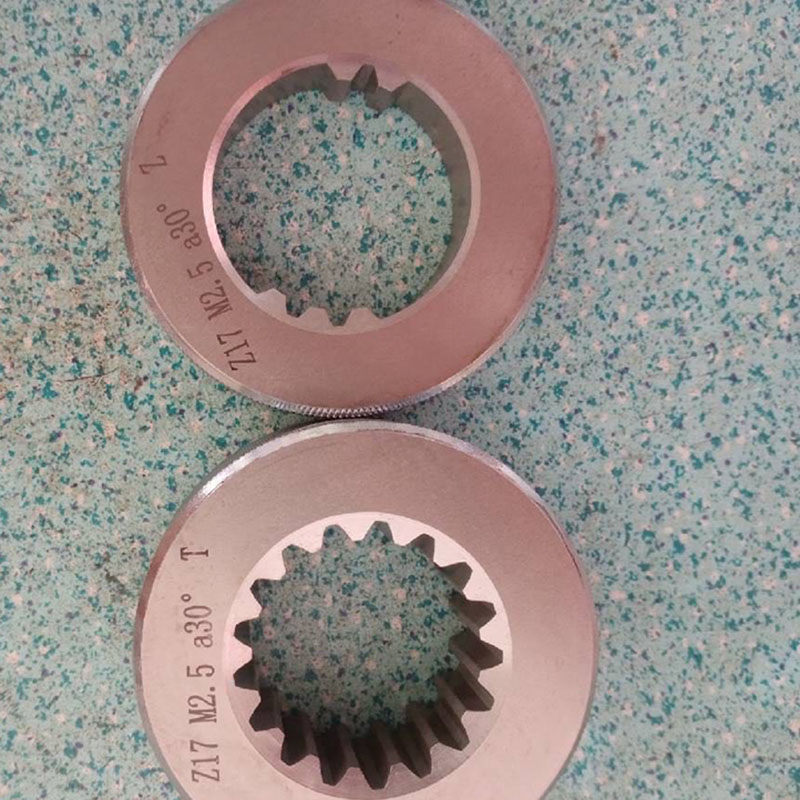12月 . 11, 2024 12:07 Back to list
plug gauge
Understanding Plug Gauges A Key Tool in Precision Measurement
In the world of manufacturing and engineering, precision is paramount. One of the essential tools contributing to this accuracy is the plug gauge. This instrument plays a crucial role in ensuring that holes are correctly sized and that components fit together as intended. In this article, we will delve into what plug gauges are, how they work, their types, and their importance in various industries.
What is a Plug Gauge?
A plug gauge is a cylindrical tool used to measure the internal dimensions of holes. It is designed to fit exactly into a hole of a specific diameter, allowing users to verify whether the hole meets specified tolerances. The plug gauge comes in two variations go and no-go gauges. The go gauge is the smaller of the two and is meant to fit into the desired hole, while the no-go gauge is slightly larger and should not fit into the hole if it is within the specified tolerance.
How Plug Gauges Work
Plug gauges are made from high-quality materials, typically hardened steel, to ensure durability and maintain their precision over time. The operational principle is straightforward the user inserts the go gauge into the hole. If it fits, it indicates that the hole is within acceptable limits for that size. Conversely, when the no-go gauge is inserted and fits, it signals that the hole is oversized and does not meet the stipulated specifications.
Types of Plug Gauges
Plug gauges can be categorized based on various factors, including size, material, and design. The most common types include
1. Plain Plug Gauges These are the standard gauges made for checking the diameter of holes. They are often used in general manufacturing processes.
2. Tapered Plug Gauges These gauges have a tapered design, allowing them to measure tapered holes or provide a more forgiving fit for certain applications.
plug gauge

3. Adjustable Plug Gauges These are designed to allow users to make fine adjustments to the gauge's size, making them versatile for various applications.
4. Threaded Plug Gauges Used primarily for checking the internal dimensions of threaded holes, these gauges ensure that threads are accurately formed for proper engagement with screws or bolts.
Importance of Plug Gauges
Plug gauges are vital in many industries, including automotive, aerospace, and general manufacturing. Their primary purpose is to guarantee quality control. Here are several reasons why they are indispensable
1. Quality Assurance Plug gauges help manufacturers maintain consistent quality in their products. By ensuring that holes meet specific tolerances, companies can reduce the risk of assembly issues and ensure functional performance.
2. Cost-Effectiveness Investing in plug gauges can save companies money in the long run by minimizing waste and rework. By identifying problems during the manufacturing process, companies can address issues before they escalate.
3. Regulatory Compliance Many industries are subject to regulatory standards. Utilizing plug gauges can assist companies in adhering to these regulations by demonstrating that their products meet required specifications.
4. Enhanced Production Efficiency The use of plug gauges streamlines the inspection process. Workers can quickly verify dimensions, allowing for faster production times without sacrificing quality.
Conclusion
In summary, plug gauges are indispensable tools that provide precise measurements in various manufacturing processes. By enabling quality control and ensuring that components fit together as designed, they play a pivotal role in maintaining the integrity of products across multiple industries. Whether through ensuring compliance with industry standards or enhancing production efficiency, plug gauges remain a fundamental aspect of precision engineering. As industries continue to evolve, the significance of these gauges will undoubtedly persist, supporting the relentless pursuit of quality and accuracy in manufacturing.
-
Why Metric Trapezoidal Thread is Ideal for Precision Motion ControlNewsAug.05,2025
-
The Unique Properties of a Block of Granite for Industrial UseNewsAug.05,2025
-
The Role of Flanged Y Strainers in Preventing Pipeline ClogsNewsAug.05,2025
-
The Importance of Regular Calibration for Master Ring GagesNewsAug.05,2025
-
How a Cast Iron Surface Table Enhances Accuracy in ManufacturingNewsAug.05,2025
-
Comparing Different Check Valve Types for Optimal Flow ControlNewsAug.05,2025
Related PRODUCTS









